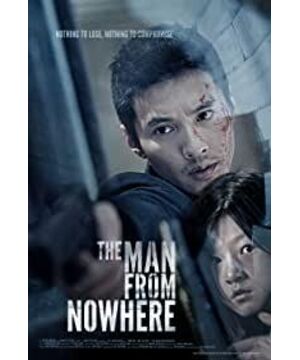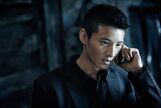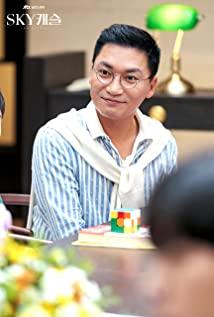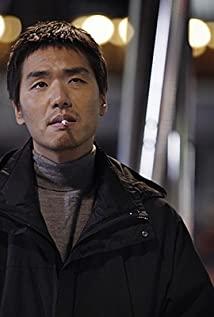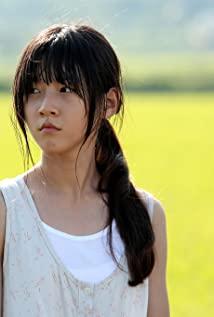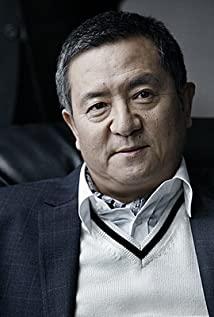1. The Hollywood model of "usedism": the "Westernization" of cultural forms
In the movie "Uncle", sturdy action design, stunning visual special effects, interlocking The story advancement, the narrative method of disassembly and combination, and the meticulous characterization of the characters are everywhere with traces of the characteristics of Hollywood movies. In the film, Yuan Bin's "Uncle" Cha Tae-seok, is a maverick, saves orphans with one enemy and a hundred, and is very personal heroism in the American superhero blockbuster. As for commercial operation, genre film positioning, etc., the overall framework is a typical "usage doctrine" of Hollywood classic action films.
But looking back at South Korea’s history, there are reasons for this trend. After the Second World War, with the strong invasion of American culture, South Korea’s ancient and simple traditional values collided and merged with it. From the political environment to the economic structure, the mentality of the people and the current state of society, all showed that South Korea’s cultural form was gradually being "closed." It gradually gradually changed to "Westernization". The commercialization model of the Korean film industry is also maturing with the continuous learning and integration of American Hollywood films. However, I personally think that Korean films have not yet formed their own language system. To a certain extent, they only speak the Asian version of the listed English films. Maybe Only when this country truly realizes the "compatibility and coexistence" of the East and the West in the cultural form, will Korean films have their own unique system.
2. Character background setting: Pay attention to marginalized people and face negative social problems. In the
film, Yuan Bin plays the leading actor "Uncle" Cha Tae-seok, a former member of the Special Forces of the National Intelligence Agency. He has performed dangerous assassination missions to protect national security and has won numerous medals. , But the beloved wife and unborn child died tragically due to the enemy's revenge. Since then, they have been devastated, and they have become "pawnshop ghosts" in the eyes of others, numb. And the "Lolita" heroine played by the child star Jin Sailun, the girl Xiaomi, has lost her father’s love since she was a child, and her mother has nowhere to take care of herself. In the end, the mother of the nightclub even implicated the young Xiaomi in the drug robbery of the gang for her own personal gain, and was forced to witness the blood and darkness.
Undoubtedly, these two individuals are the epitome of the lowest and most marginalized people in society, and they are weak individuals who have been discriminated against and ignored by society. It is this type of people who, after suffering the unloadable pressures that life has given for a long time, are prone to go to extremes and cause violence. It is also this kind of people who don't require much, just want to maintain the sense of security and happiness of mutual trust and dependence. But if it is such a simple request that even the right of one's own life is to be deprived, there will be no other way besides fighting desperately and resisting with fate. Obviously, this kind of character setting is in line with the needs of plot development and rational logic, and it can also arouse the sympathy and righteous indignation of the viewers, and produce a sense of emotional substitution to a certain extent.
However, if the story only follows the single line of "Uncle Save Lolita", it is obviously difficult to support the structure and content of a commercial film at the moment, so a series of negative and dark social issues appear in the plot to pave the way for the main background of the development of the story: Illegal organ trading, underworld drug trafficking and child trafficking, coercion of child labor to commit drug production, etc. In fact, in the real society of South Korea, juvenile delinquency and illegal organ trading are as serious as the problem of compensated dating. On the Internet, it is easy to find websites that illegally buy and sell organs. This has become an unavoidable problem in Korean society.
In the film, the corpse of Xiaomi’s mother whose organs have been excavated by the gangsters, with rough stitched traces, is presented naked in front of the audience, with various fresh "gameplays" that cause death. The bloody scenes of intercepting human organs were also bombarded in turn. In the design of each scene, the director made the audience feel the dark side of society and the ravages of the human heart. Although this kind of visual violence has greatly increased the "selling point" of the film, it is also an unshirkable exposure and attack on the current negative social problems in South Korea. To solve the problem.
In addition, there is an interesting fact in the film-while "Uncle" Cha Taixi is running to rescue "Lori" Xiaomi, the police are also investigating this drug trafficking murder case, but the investigation focuses on unknown sources. Cha Tae-seok, even after investigating Cha Tae-seok’s special identity, he ridiculously said to Cha Tae-seok, who is in danger and rectifying the gang: "I will definitely catch you!" Again, with Cha Tae-seok. Neatly singled out a group of people, and finally succeeded in rescuing Xiaomi. There is a strong contrast to the panic situation where several police teams arrested a criminal but beaten up. From start to finish, they have been doing useless work, unable to catch criminals, and adding chaos to Cha Tae Suk's rescue operation. The ridiculous, arrogant, and incompetent image of the police-national security department is undoubtedly revealed in the film. In Korean movies, this is not a single case. Take the sci-fi alien movie "Han River Monster" as an example-the police and medical staff are indifferent and even suppress the masses persecuted by the monsters. The Han River emits toxic gases, the police scare ordinary people away to kill monsters together... and other scenes, all show ridicule and criticism of mainstream power. Obviously, in modern Korean films, the filmmakers have expressed their own distrust of the mainstream power of the country, questioning the authority of the national security department, and attacking the government's numbness and corruption and marginalizing the people, showing the director. Stance of people-centeredness.
three. The epitome of the story: the Korean nation’s long history of panic
film, as an art, is an active text and picture. It is already an important carrier of human thought. To a certain extent, it can be seen from the film that a person is a nation. State of mind, the movie "Uncle" can be described as a microcosm of Korean culture, politics, and history.
In terms of culture, from “de-sinicization” with great fanfare, the “application” of Chinese tradition as a local culture, to the attempt to allow the blood of ancient Chinese sages to be “taken by South Korea”, the so-called “independent culture” of South Korea is only an extension of the civilization of neighboring countries. Teng Nuo even eliminated the fact that there are few unique and distinctive local cultural characteristics seen in the world. The lack of cultural accumulation has caused South Korea to have a sense of crisis and panic, which has resulted in excessive aggressiveness. It can improve the superiority and self-confidence of its citizens by weakening and marginalizing other countries. As a result, China, regarded as an "imaginary enemy" by South Korea, has almost no positive image in South Korean film and television works. Some modern dramas have also vilified China into a country full of triads, criminals, economically backward, and backward cities. All mafia Scary images such as, smugglers, drug lords, spies, wizards, etc. are all Chinese. Just as the "Uncle" Cha Tae-seok joins the drug lords in the movie "Uncle", who was mistaken for the Chinese translation of the Chinese and the drug lords who are greedy for life and fear of death, the image of China has been completely demonized and demonized.
In terms of politics, due to its own geographical conditions, South Korea has always been a bargaining chip in the game between major powers, and the inherent insecurity and drifting feeling of the nation itself has always been a pain for Koreans. Even if the European and American powers develop friendly relations with Asia in order to check and balance Asia, they will never be able to achieve an alliance of interests, and hostile countries will take the opportunity to provoke and confront South Korea. In terms of military affairs, the situation on the Korean Peninsula is on the verge of breaking out. Neighbors Japan and China refuse to intervene due to their respective diplomatic and political stances. North Korea is like a knife hanging over South Korea. Colonization, the real sense of security is impossible. Just like the girl Xiaomi in the film, she was quite passive in the story, and even almost became the victim of a contest between good and evil. She was controlled by others and had no ability to counterattack, and she could only wait for rescue.
In the historical process and situation stance shrouded in frustration, the Korean nation has generally formed an "islander mentality" of inferiority, self-esteem, sensitivity, and impatience. Just like Xiaomi in the movie, the lack of father’s love and the mother’s indulgence made this misplaced child roam in a world where he lives with the "uncle", but faced the "uncle"'s indifference in a chance encounter on the street. Deviation made her fall into cold despair, crisis and doubt. And this is exactly the portrayal of the "islander mentality", and any disturbance may overflow fragile panic.
After the Korean nation’s long-lasting depression and servitude have accumulated to a certain extent, the "angry" has transformed into "hate", and "hate" has been externalized into "ruthless", just like the core of the movie's story. Ignored "hate" and "ruthlessness"-"Uncle" Cha Tae-seok's autistic, gloomy and unsmiling originated from the painful past of losing his wife. He is like a lonely and cold beast in the middle of the market, trance identity Unknown to outsiders, this is a process of "accumulating hatred" before violence occurs. However, the girl Xiaomi has become his sustenance for survival, the only sustenance in the world that gives him warmth and coldness. It is the sustenance of her innocent death due to her negligence. For this reason, when Kan Kan's most sensitive feelings are broken, "hate" finally splits into " Ruthless": He shouted "live only for today" and went to bloody fight without scruples. This is not only a journey to save the weak, but also a way of regaining self and reshaping faith. If the role of "Xiaomi" bears the weakness and hesitation of a country, then "Uncle" Che Tae-seok represents its toughness and strong will. When the "uncle" hugged Xiaomi with a long-lost smile at the end of the film, a more determined tomorrow seemed to have arrived. "Living for today" also seemed to place hope of rebirth on this country and this nation.
-------------------------------------------------- ------------------------------------
There are multiple references, so I won't mark them one by one. But this is also considered to be the article that has entered the movie essay database. Don't forget to write an indexing note for reference~
View more about The Man from Nowhere reviews


